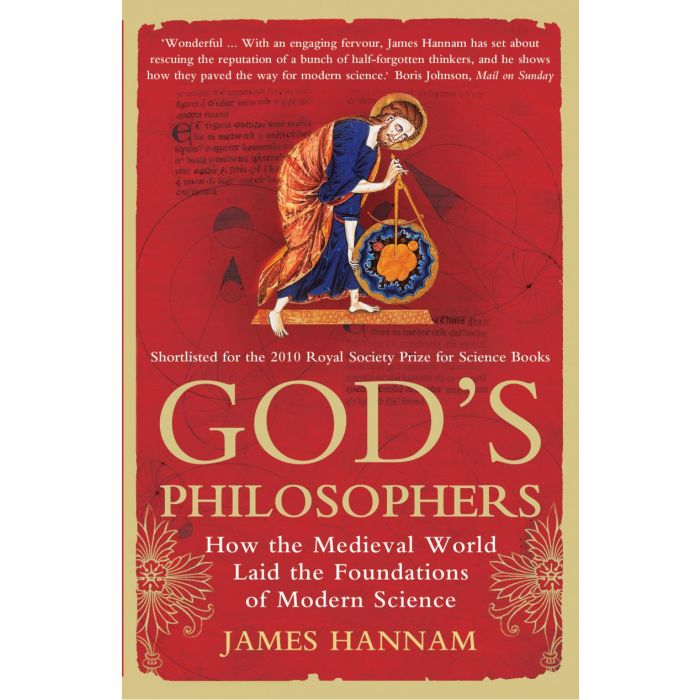My Cart
Your cart is empty
Looks like you haven't made your choice yet.
- Subtotal
God's Philosopher

- Icon (Faber)
- by James Hannam
More Information
| Publisher | Icon (Faber) |
|---|---|
| ISBN | 9781848311503 |
| Author(s) | James Hannam |
| Publication date | May 2010 |
| Edition | Paperback |
| Dimensions | 198 x 128 mm |
| Pages | 448 |
| Language(s) | Eng. ed. |
Description
This is a powerful and a thrilling narrative history revealing the roots of modern science in the medieval world. The adjective 'medieval' has become a synonym for brutality and uncivilized behavior. Yet without the work of medieval scholars there could have been no Galileo, no Newton and no Scientific Revolution. In "God's Philosophers", James Hannam debunks many of the myths about the Middle Ages, showing that medieval people did not think the earth is flat, nor did Columbus 'prove' that it is a sphere; the Inquisition burnt nobody for their science nor was Copernicus afraid of persecution; no Pope tried to ban human dissection or the number zero. "God's Philosophers" is a celebration of the forgotten scientific achievements of the Middle Ages - advances which were often made thanks to, rather than in spite of, the influence of Christianity and Islam. Decisive progress was also made in technology: spectacles and the mechanical clock, for instance, were both invented in thirteenth-century Europe. Charting an epic journey through six centuries of history, "God's Philosophers" brings back to light the discoveries of neglected geniuses like John Buridan, Nicole Oresme and Thomas Bradwardine, as well as putting into context the contributions of more familiar figures like Roger Bacon, William of Ockham and Saint Thomas Aquinas.

God's Philosopher
